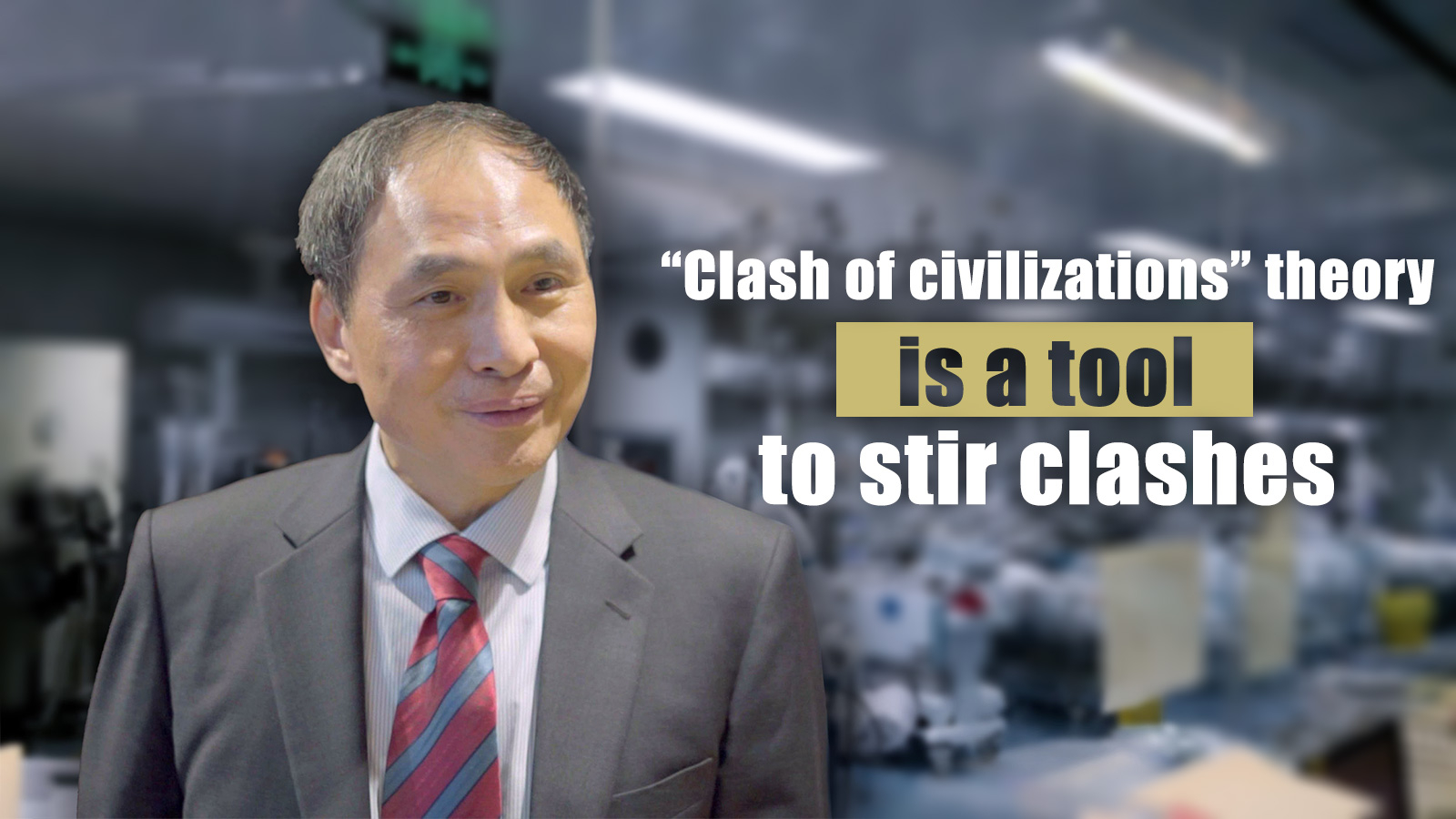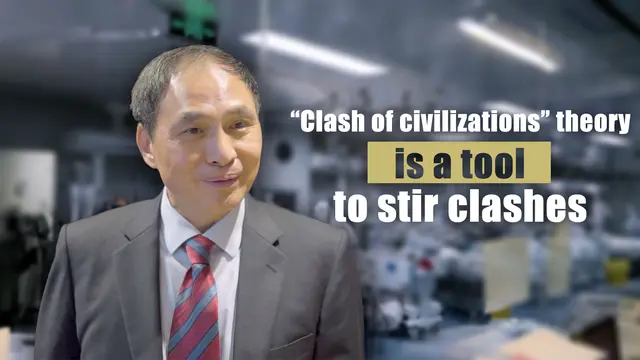05:13

Editor's note : China is mobilizing the whole society to combat the COVID-19. What are the challenges? Why are some Westerners obstinate in anti-China sentiments? How will this affect China-West relations? What's the solution? CGTN's Liu Jianxi talked with Zheng Yongnian, professor at the National University of Singapore and director of CCG Academic Council, on these issues. Here is the third part of the interview. The article reflects the expert's opinions, and not necessarily the views of CGTN.
**CGTN: **What's your take on "clash of civilizations" theory? How will it impact the U.S.'s foreign policy?
**Zheng: **The theory of "clash of civilizations" itself is actually the idea of racial superiority. Samuel Huntington was the first to put forward this idea.
His proposal points to different civilizations, which involve different races, and of course, he added some differences in so-called political systems. But his theory is mainly about races and religions.
When we review the millennia of human history, it is clear that civilizations themselves do not clash. The only thing is that politicians and aggressive hardliners need to find a theory to justify their theory of international policy, foreign policy, and international relations.
Only on such occasions will they grab the theory of "clash of civilizations" and use civilization as a tool, the use of which will then lead to clashes.
Therefore, I think the theory of the "clash of civilizations" is just a convenient theory of those hardliners who emphasize international conflicts rather than international cooperation.
In fact, the theory cannot stand up to scrutiny and is actually very harmful in terms of policy practice. In recent years, America's theory of the"clash of civilizations" has gradually been used to involve the so-called clash between Western and Chinese civilizations.
Therefore, China should pay special attention because every time the U.S. wants to implement a tough policy or conflict policy towards another country, it always turns to a theory to justify its behavior. I think it is doing this now probably because there is no other effective theory to explain why China is the greatest enemy of the United States.
A couple of days ago, the U.S. Secretary of Defense (Mark Esper) said at the Munich Security Conference that China was their top concern. He cited many examples. What he said were their cliché ideas, such as China not respecting intellectual property rights and China's foreign policy being aggressive.
However, the theory of "clash of civilizations" elevates it to cultural and philosophical levels, which is more harmful than those cliché ideas of conflict, so we should pay particular attention to it.
**CGTN: **How will rising racism affect China-U.S. relations?
**Zheng: **Objectively speaking, both the Chinese side and the U.S. side have made great efforts to reach that agreement. I think it is hard-won. My concern is that the U.S. consists of various interest groups. The trade deal is great news for Wall Street and the economic sector at large.
No one wants to see the trade friction between the two countries continue in the future because they are the world's largest and the second-largest economy affects not only the bilateral relations but also the global economy.
The COVID-19 has already impacted the global economy. If the trade deal can be implemented well, it will be a stabilizer for the global economy and the China-U.S. economic relationship, so we should cherish it. But another thing is that in the U.S. there are also hawkish groups in the military and defense communities and anti-China groups who weaponize the COVID-19.
Such forces are also gaining ground. Racism and the theory of "clash of civilizations" are harmful to China-U.S. relations. How to address the interests of the economic sector and those of the aggressive, non-economic sectors is a matter of great importance.
We still stress the role of international cooperation in carrying forward globalization, improving international economic relations and resolving China-U.S. disputes. The same holds true for combating the COVID-19. We should stand together with an open mind, work with the economic sector and other pro-China groups in the U.S., and avoid being manipulated by the hardliners.
At this point, it's easy to stir up the voice of hardliners on both sides because there is a nationalist sentiment on both sides, but I think we should be rational. It is always easy for the two sides to blame each other, and solving problems through cooperation is much more difficult, but no matter how difficult it is, both sides should try their best to work things out.
COVID-19 fight is scientific not political
Is racism on the rise in the West?
(If you want to contribute and have specific expertise, please contact us at [email protected].)
 简体中文
简体中文

